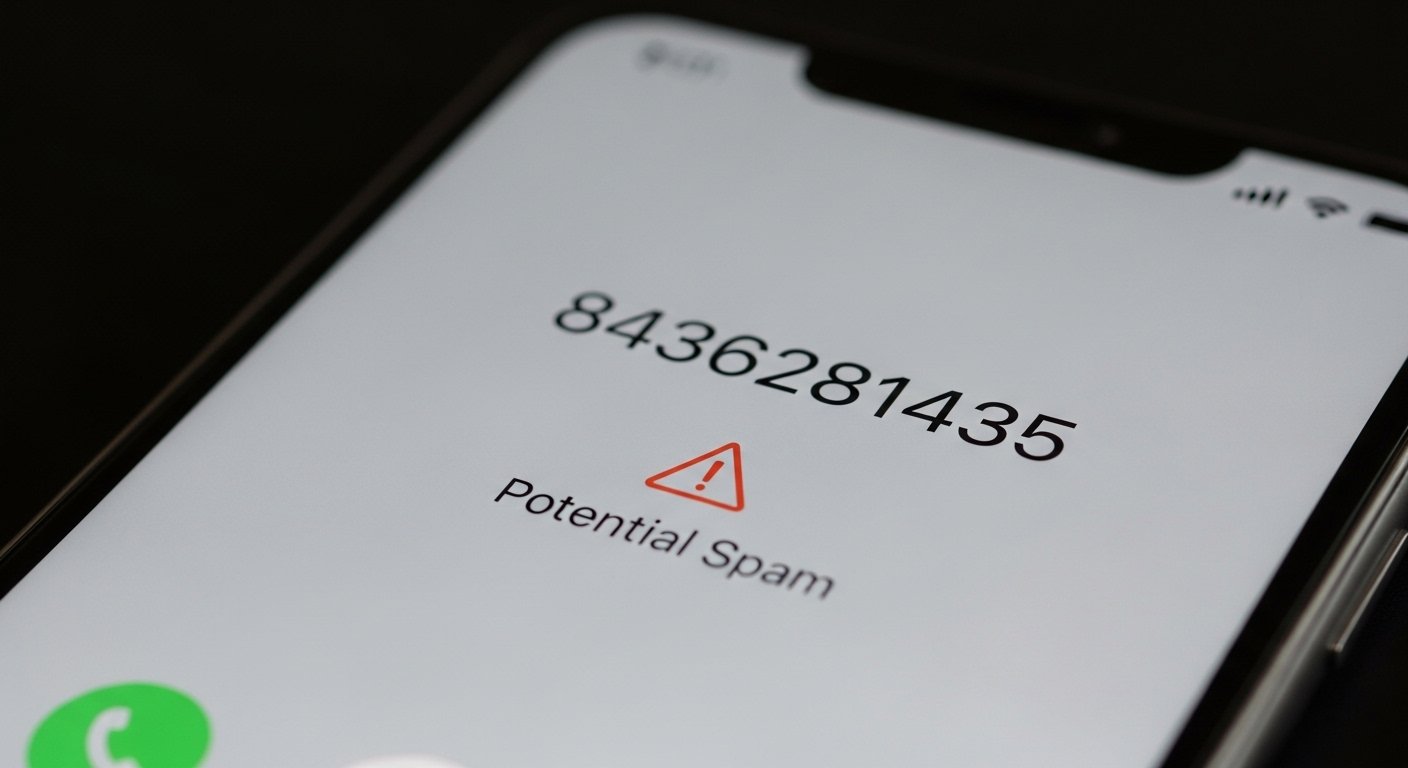Have you ever been going about your day when your phone rings, displaying a number you don’t recognize? It’s a common experience in our connected world. One such number that has appeared on countless caller IDs is 8436281435. If you’ve found yourself staring at this specific sequence of digits, wondering who it is and whether you should answer, you’re not alone.
This area code is legitimate, but the intentions of the caller can be murky. This article will serve as your guide to understanding what a call from 8436281435 might mean. We’ll explore the geographical origin of the number, discuss the common reasons for such calls, and, most importantly, equip you with the knowledge to protect yourself from potential phone scams and privacy invasions. Let’s demystify this number and turn uncertainty into empowered awareness.
Where is the 843 Area Code From?
Before we dive into the specifics of the caller, it’s helpful to understand where the call is originating. The 843 area code is not a random, computer-generated sequence. It is a genuine, geographically assigned area code in North America.
This area code serves the southeastern coastal region of South Carolina. It covers a beautiful and populous area, including major cities like:
-
Charleston
-
Myrtle Beach
-
Hilton Head
-
Florence
-
Beaufort
So, a call from a number starting with 843 is technically coming from this part of the United States. This is a crucial first piece of the puzzle. It tells us that the number isn’t a purely fictional creation but is tied to a real location. However, this is where the simplicity ends. With modern technology, it has become incredibly easy for callers to “spoof” their numbers, making it appear as though they are calling from a legitimate area code like 843 when they are actually located anywhere in the world.
Who is Really Calling from 8436281435?
Just because the area code is real doesn’t mean the call is legitimate or welcome. There are several potential entities that could be using this number, ranging from the benign to the malicious.
Potential Legitimate Callers
In some cases, a call from this number could be harmless.
-
A Local Business: It could be a small business, a doctor’s office, or a school in the South Carolina area trying to reach a client or patient.
-
An Individual: It might simply be a person trying to contact a friend or family member. People move, change numbers, and sometimes dial incorrectly.
-
Political Campaigns or Surveys: During election seasons, political campaigns and polling organizations make thousands of calls, sometimes from local numbers to increase answer rates.
However, if you have no connection to South Carolina and are receiving repeated calls, the likelihood of it being a legitimate wrong number decreases significantly.
The More Likely Scenario: Robocalls and Scams
The unfortunate reality is that numbers like 8436281435 are frequently associated with unsolicited and often fraudulent calls. Reports from various call-blocking apps and user communities suggest this number is commonly used for:
-
Car Warranty Scams: You may receive a robocall or a live caller insisting your car’s warranty is about to expire and pressuring you to purchase an overpriced or completely fake extended warranty.
-
Debt Reduction Schemes: Callers may offer to significantly reduce your credit card debt or student loans, often requiring upfront fees for services they never provide.
-
Phishing Attempts: The caller might pretend to be from a government agency like the IRS or Social Security Administration, claiming there is a problem with your account and demanding immediate payment or personal information.
-
General Telemarketing: It could be an aggressive telemarketer from a company you have no relationship with, which is a violation of the National Do Not Call Registry.
Is 8436281435 a Dangerous Scam?
Based on the volume of user reports labeling this number as “spam,” “telemarketer,” or “scam,” it is safe to treat any unsolicited call from 8436281435 with a high degree of caution. The primary danger is not physical but financial and personal.
The risk lies in the social engineering tactics these scammers use. They are skilled at creating a sense of urgency, fear, or too-good-to-be-true opportunity to trick you into divulging sensitive information. This could include your Social Security number, bank account details, credit card numbers, or your mother’s maiden name. With this information, they can commit identity theft or drain your accounts.
How to Protect Yourself from Unwanted Calls
Knowledge is your first line of defense. Here are practical steps you can take to manage calls from unknown numbers and protect your privacy.
Immediate Actions to Take
-
Don’t Answer: The simplest and most effective rule. If you don’t recognize the number, let it go to voicemail. Legitimate callers will often leave a message.
-
Never Engage or Press Buttons: If you do answer by mistake, do not follow any instructions to “press 1 to speak to an agent” or “press 2 to be removed from the list.” This only confirms your number is active and can lead to even more calls.
-
Do Not Provide Personal Information: Under no circumstances should you give out any personal or financial details. No legitimate organization will ever ask for sensitive information over an unsolicited call.
-
Hang Up Immediately: If you sense the call is a scam, just hang up. You don’t owe the caller an explanation.
Proactive Measures for Long-Term Peace
-
Use Your Phone’s Built-In Features: Both iOS and Android operating systems have settings to silence calls from unknown numbers, sending them straight to voicemail.
-
Register with the National Do Not Call Registry: While it won’t stop scammers, it should reduce the number of legitimate telemarketing calls you receive.
-
Utilize Call-Blocking Apps: Consider installing a reputable call-identification and blocking app. These apps use community-reported data to warn you about potential spam numbers before you even answer.
-
Report the Number: You can report unwanted calls to the Federal Trade Commission (FTC) at reportfraud.ftc.gov. This helps authorities track and take action against illegal callers.
What to Do If You’ve Already Engaged
If you’ve already interacted with a caller from 8436281435 and shared information or made a payment, don’t panic. Act quickly to mitigate the damage.
-
Contact Your Bank: If you shared bank or credit card details, call your financial institution immediately. They can help you monitor for fraudulent activity, cancel your card, or even freeze your accounts.
-
Place a Fraud Alert: Contact one of the three major credit bureaus (Equifax, Experian, or TransUnion) to place a fraud alert on your credit report. This makes it harder for someone to open new accounts in your name.
-
Change Passwords: If you shared any login information, change those passwords immediately.
-
Monitor Your Accounts: Keep a close eye on your bank and credit card statements for any unauthorized charges.
Conclusion: Empowerment Through Caution
The mystery of 8436281435 is, in many ways, a symptom of a larger issue in our digital age. While it’s a real South Carolina area code, its frequent use in unsolicited calls means vigilance is essential. You have the right to control who you communicate with and protect your personal data.
By understanding the potential risks, recognizing the common tactics of scammers, and implementing the practical steps outlined above, you can transform a moment of anxiety into one of confident control. Let your phone be a tool for connection, not a source of stress. When in doubt, let the unknown call go to voicemail—your privacy and security are always worth protecting.
FAQs About 8436281435
1. I got a call from 8436281435, but I don’t live in South Carolina. Should I be worried?
You don’t necessarily need to be worried, but you should be cautious. Scammers often “spoof” numbers from real area codes to appear more legitimate. Since you have no ties to the area, it is highly likely an unsolicited sales call or a scam.
2. Is it safe to call 8436281435 back?
It is not recommended. Calling back a suspected spam number can confirm that your number is active and may lead to you being targeted with even more unwanted calls. It’s best to avoid any direct contact.
3. What kind of scam is most associated with this number?
User reports most commonly link this number to vehicle warranty scams and debt reduction schemes. The callers use high-pressure tactics to try and extract money or personal information.
4. Can I block the number 8436281435?
Yes, you can. Both iPhones and Android phones allow you to block specific numbers directly from your recent call list. This will prevent future calls from that number from coming through.
5. I accidentally gave them my email address. What should I do?
Be extra vigilant for phishing emails. Do not click on any links or open attachments from suspicious senders. Mark any spam emails as “junk” or “phishing” within your email client. Consider using a strong, unique password for that email account.

